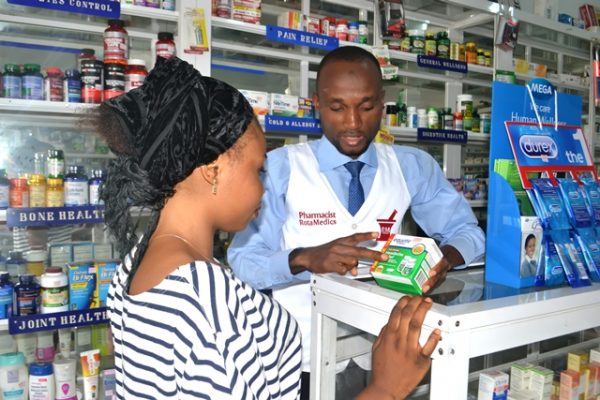Breaking News
Sick and Stranded: Nigerians Grapple with Soaring Drug Prices Despite Presidential Order
Announced by Health Minister Muhammad Pate on June 28, 2024, the Executive Order included exemptions for Active Pharmaceutical Ingredients (APIs), excipients, and diagnostic kits, among others. It also mandated regulatory reforms, collaboration between ministries, and incentives like volume guarantees for manufacturers.

One year after President Tinubu’s Executive Order to slash drug costs, prices remain sky-high as enforcement falters and economic realities bite.
Despite President Bola Ahmed Tinubu’s sweeping Executive Order aimed at slashing drug costs and boosting local pharmaceutical production, medication prices across Nigeria have continued their alarming upward climb, with many patients left unable to afford life-saving treatments.
The Executive Order, signed in June 2024, promised to eliminate tariffs, VAT, and excise duties on pharmaceutical raw materials and equipment for two years. Yet, over a year later, most Nigerians have seen little or no benefit.

“The executive order has not been implemented,” said Ambrose Ezeh, National President of the Association of Community Pharmacists of Nigeria (ACPN). “Most of the drugs, 75 per cent of what we use, are imported. With high energy costs and forex rates, prices will keep going up.”
The Executive Order: What It Promised
Announced by Health Minister Muhammad Pate on June 28, 2024, the Executive Order included exemptions for Active Pharmaceutical Ingredients (APIs), excipients, and diagnostic kits, among others. It also mandated regulatory reforms, collaboration between ministries, and incentives like volume guarantees for manufacturers.
A March 2025 release from the Nigeria Customs Service confirmed the commencement of implementation, stating that approved manufacturers would enjoy duty-free and tax-free imports of pharmaceutical inputs for two years.
“This exemption covers APIs, excipients, LLINs, diagnostic kits, reagents, and packaging materials,” said Customs spokesperson Abdullahi Maiwada, stressing the policy’s intent to reduce costs and stimulate local production.
Reality Check: Prices Keep Climbing
However, an Opinion Nigeria investigation shows that drug prices have soared between 30% and 124% across various categories since the policy was introduced.
Malaria medication, in particular, has doubled:
- Coartem: ₦3,800 → ₦8,500 (+124%)
- Artesunate injection: ₦1,600 → ₦2,500 (+56%)
- Lokmal tablets: ₦1,200 → ₦2,450 (+104%)
For chronic illness patients:
- Insulin: ₦14,000 → ₦18,000 (+29%)
- A glucometer: ₦20,500 → ₦29,000 (+41%)
- Metformin: ₦500 → ₦650 (+30%)
- Amlodipine: ₦1,800 → ₦2,400 (+33%)
- Exforge: ₦32,800 → ₦60,000 (+83%)
Only a few drugs, like Augmentin and Ventolin inhaler, recorded modest price drops of 24% and 12%, respectively.
“Prices of drugs are still not affordable. Some people now rely on herbs,” said Maryam Bala, a mother of three in Kano.
Implementation Lag and Import Dependence
According to pharmacists and health professionals, implementation delays, dollar scarcity, and continued dependence on imports are undermining the Executive Order’s impact.
“Drugs that were imported before the order still carry old prices. It’s new importations that are beginning to reflect the change,” said Olatunji Aloba, ACPN Chairman, FCT.
Others argue that the policy remains “on paper.”
“The executive order hasn’t been felt in the market. Local manufacturers are still hiking prices,” a community pharmacist in Abuja told PUNCH anonymously.
Stakeholders Sound the Alarm
Dr. Tope Osundara, President of the Nigerian Association of Resident Doctors (NARD), said the country lacks enough pharmaceutical capacity to produce essential medicines locally.
“Out-of-pocket payment remains high, and many can’t afford drugs even when prices drop slightly. Many Nigerians still live under $1 a day,” he noted.
Prof. Bala Audu, President of the Nigerian Medical Association, urged full enforcement:
“The executive order must be fully implemented to ease the burden on Nigerians.”
Manufacturers Warn of Policy Reversal
While the zero-tariff policy was praised initially, a new 4% Free-On-Board (FOB) import levy threatens to reverse progress.
“The FOB charge nullifies the benefits of the zero-tariff policy,” said Frank Muonemeh, Executive Secretary of the Pharmaceutical Manufacturers Group of MAN. “We may see sharp increases in 2025 if this continues.”
Patient Stories: The Human Cost
Abdulwahab Dauda, Lagos chairman of the Diabetes Association of Nigeria, said insulin remains out of reach:
“Insulin rose from ₦4,000 to ₦20,000. We wrote to the Ministry of Health last year, but nothing has changed. Many of our members cannot afford it.”
Mrs. Idowu Abi, a petty trader, said treating malaria recently cost her over ₦16,000, not including feeding.
In Gombe, Ibrahim Adamu lamented that common painkillers now cost over ₦1,500. Fatima Sambo, a trader, said she often buys half of her diabetic husband’s prescription due to costs.
In Plateau, Mohammed Abubakar said malaria drugs now cost ₦3,000, a tenfold increase.
In Yobe, civil servant Umar Geidam said, “The government order on drug prices has not been effective due to lack of enforcement.”
In Nasarawa, Tanko Muhammad spent nearly his entire July salary treating a nephew’s typhoid case. “I can’t imagine what low-income earners are facing,” he said.
Looking Ahead: Hope or Hopeless?
Despite the grim outlook, stakeholders still believe that if implementation is accelerated and better coordinated, the policy could deliver relief.
“You can’t win it all,” said Olatunji Aloba. “But with time, competition will bring prices down.”
Still, experts warn that unless the federal government harmonises its economic and health policies — and shields pharmaceutical inputs from contradictory levies — the Nigerian people will continue to suffer.
“Policies cannot be done in isolation,” said Frank Muonemeh. “Flips and somersaults affect the whole economy.”
As Nigeria faces a drug pricing crisis, the failure to enforce the Executive Order may cost lives. With healthcare increasingly unaffordable, patients and professionals alike are demanding more than policy promises — they want results.
“Medicines should not be a luxury,” said Abuja resident Mr. Endurance Amogi, “yet today, only the rich can survive illness in Nigeria.”










